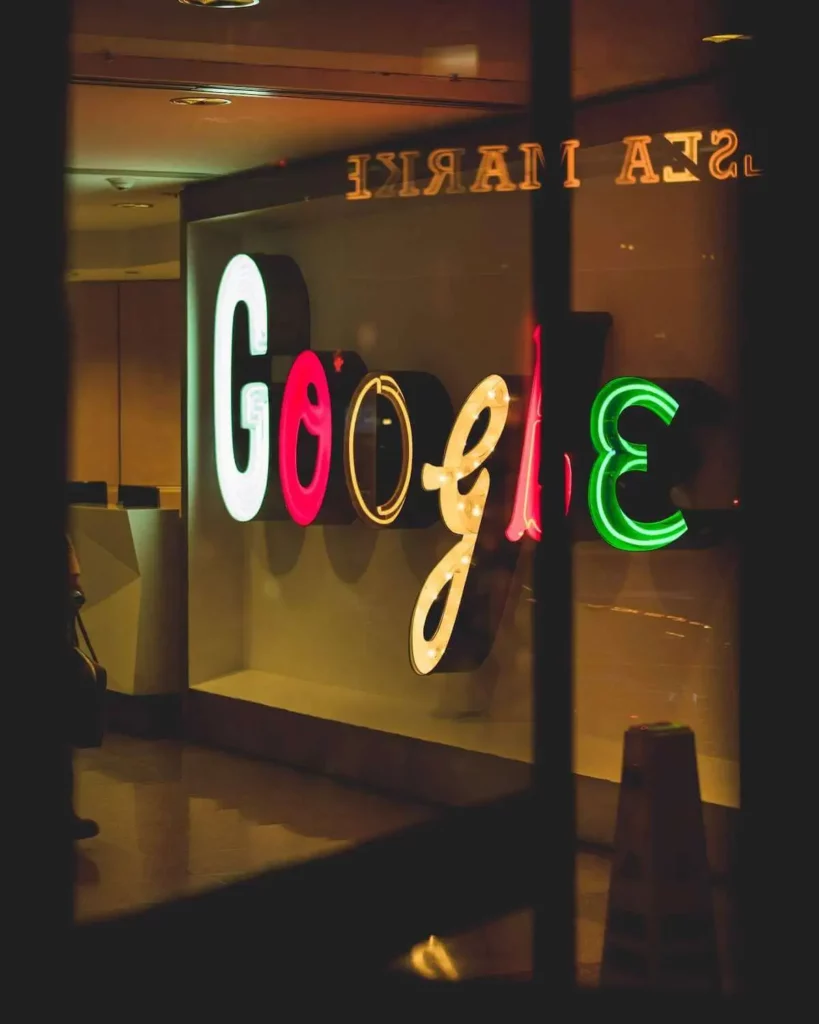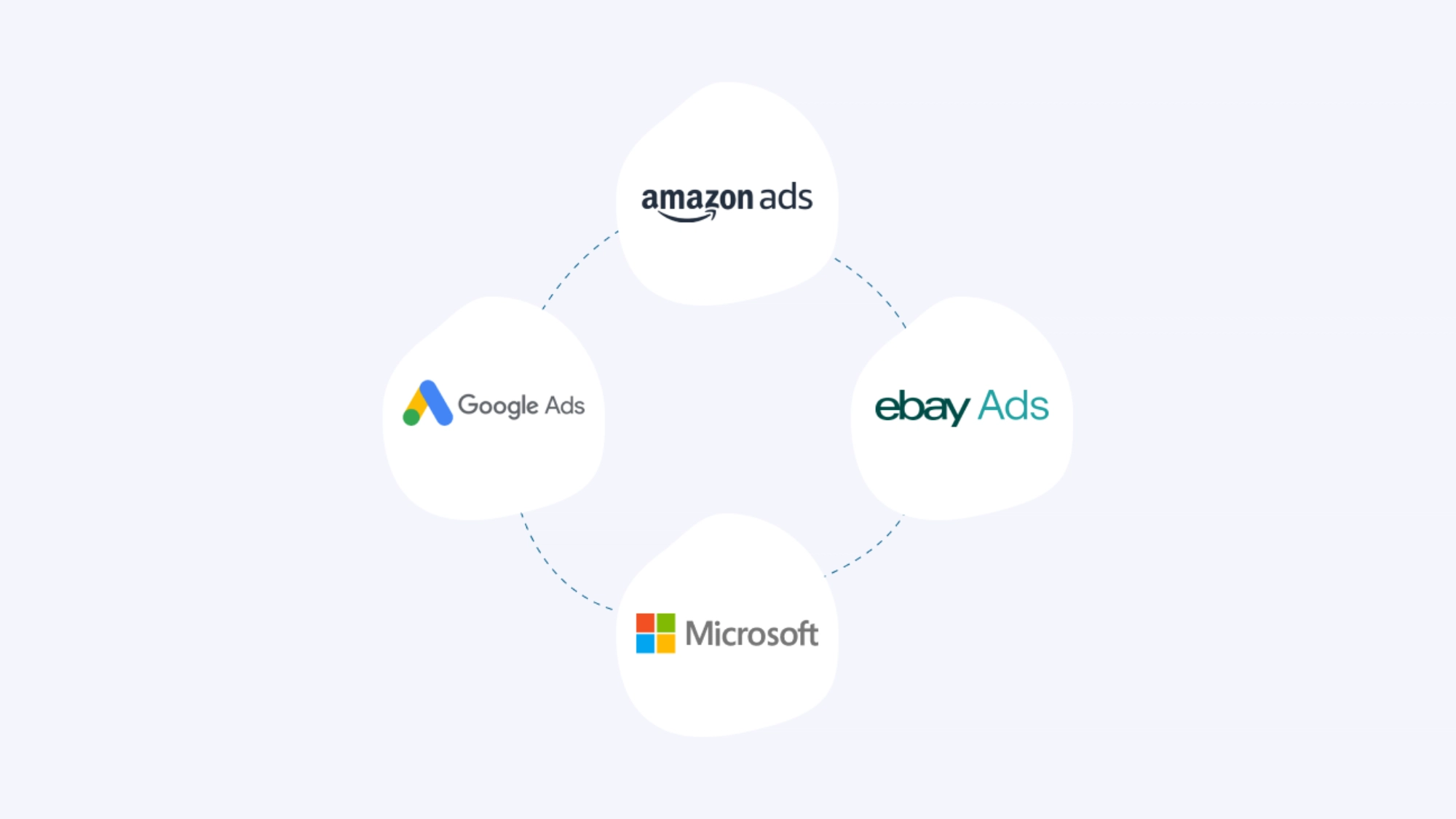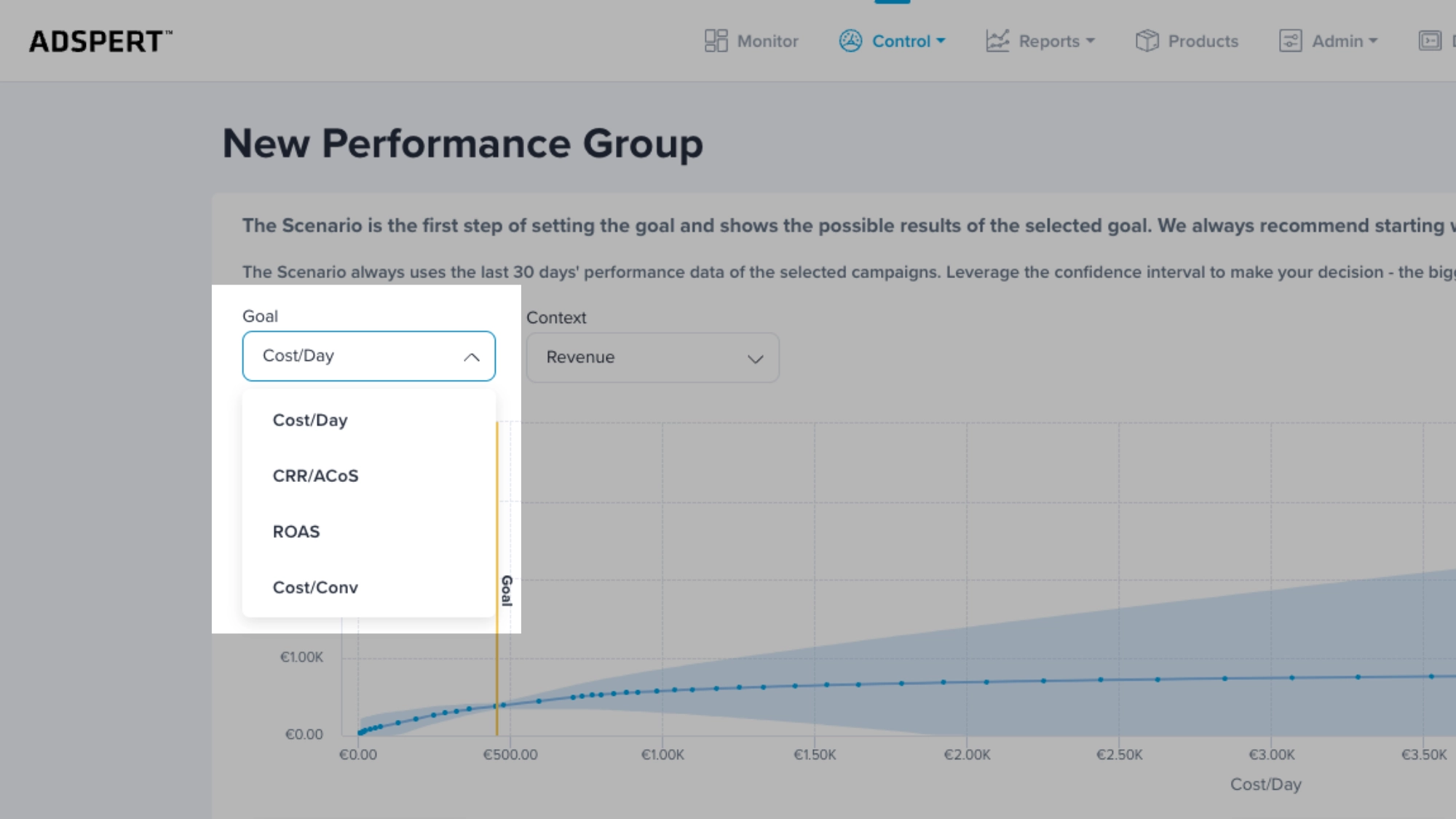A side note: before you start advertising on Bing, learn more about Bing PPC management. If you won’t properly manage and optimize your Bing Ads, then you most likely won’t reach expected results. And it goes the same for Google Ads – you need to optimize your Google Ads campaigns!
Google Ads Pros
Popularity
Everybody knows that Google is the biggest search engine. In fact, in 2019, Google accounted for 75.74% of worldwide desktop and laptop searches and got the largest number of its visitors from the US. These numbers put Google in the first place when it comes to popularity.
Straightforward Ad Structure
A great thing about Google Ads is that it’s intuitive and easy to use. Everything you need, Google will provide, including a keyword planner and analytic tools.
The way the ads are structured is also pretty straightforward. The ads are organized in campaigns, and we have three types of campaigns:
- Search Ads – these are text ads
- Display Ads – these are image based ads
- Video Ads – the ads we see on YouTube
The different campaigns offer a lot of diversity to your ads. Google Search ads have your website’s URL and description under the ad’s title. You can have two short description lines of 35 characters each, or a longer description line of 80 characters.

Google Ads Cons
More Competition
Because Google has a greater reach than any other search engine, your ads will be seen by a lot of people, but this also comes with a downside: more competition. There will be a lot of ads competing for the same spot. In order for your ad to appear on Google, you have to constantly optimize your advertising campaigns, your keywords, and your bids.
Higher Bid Prices
Another con is the pricing of the bids. A lot of competition will cause an increase in keyword bids, which essentially means that you will have to expand your daily budget and spend more money.
Now that we have seen the pros and cons of Google Ads, let’s check out Bing Ads (Microsoft Advertising):
Bing Ads Pros
Less Competition
In terms of competition, Bing Ads has the upper hand. Most businesses choose to invest just in Google Adwords, which means that there will not be a lot of competition for keywords, bids, and ad spots.
Lower Bid Cost
With lower competition comes lower bids. Of course, the bid costs depend from industry to industry, but generally speaking, you don’t have to invest as much money as you would with Google Ads. Recent studies show that the average cost-per-click on Bing Ads can be 70% lower than Google Ads.
Bing Ads Cons
Not As Popular
Bing Ads uses three search engines: Bing, Yahoo!, and AOL. The most popular of the three is, of course, Bing. Although these search engines are not as popular as Google, Bing still manages to be at the top, accounting for 33% of internet search in the US. This gives Bing Ads a pretty good and selective reach.
More Specific Ad Structure
When it comes to ads, Google Adwords and Bing Ads are pretty similar. Even though Google Ads is easier to use, Bing Ads offers specificity. For example, the types of ads on Bing are:
- expanded text ads
- dynamic search ads
- product ads
- microsoft audience ads
- microsoft advertising in Bing Smart Search
- app install ads
- responsive search ads
Just like with Google Ads, ads on bing have your website’s URL and description under the ad’s title. Like Google Ads, Bing Ads offers you the tools you need to create and optimize your ads.
Higher CTR
Bing offers several shopping and financial ads, which, combined with Bing’s prospects, increases the CTR (click-through-rate).
CTRs are used to see how well your ads and keywords are performing. To find out your CTR, you take the number of clicks your ad receives and you divide it by the number of times your ad shows up. The formula is: clicks ÷ impressions = CTR. Usually Google has a CTR average of about 2%.
The demographic on Bing is mostly formed of middle-aged people with higher incomes, so the chances of an ad being clicked and a purchase being made is much higher.
Bing Ads vs Google Ads: Click-Through-Rate

Another important factor is the frequency in which users tend to click on Bing ads versus Google Ads. While Google tends to offer a higher conversion rate because of its long-tail keywords, Bing offers a lower CTR (click-through rate) based on how frequently its ads are displayed on search results pages.
It should be noted that even though Google offers advertisers more freedom in selecting keywords for their PPC campaigns, they still rely on advertisers to help them identify profitable keywords. Because Bing relies so heavily on its users, it makes perfect sense that advertisers would want to maximize their exposure to potential customers.
Comparison: Cost-Per-Action and Cost-Per-Thousand-Impressions
When it comes to using Bing PPC versus Google AdWords, there are several factors that companies need to take into consideration.
First, Bing ads are pay per click campaigns, which means you will only get your CPA charged monthly.
This price includes the cost per thousand impressions, or CPM, as well as the cost per thousand impressions or CPM on your network.
Google offers a free daily CPA charge in their PPC program. By opting to charge a flat CPA rate monthly, companies are taking on additional risk because they can never be sure what their ads will look like or whether they will even get clicked on in the first place.
Bigger Search Engine, Bigger Audiences
While using ads within other search engines is a great way to reach audiences. It can have its drawbacks. Most advertisers are aware of this limitation and have worked to mitigate the negative impact.
However, the results from these advertising campaigns cannot always be guaranteed. Google Ads offers a level playing field, while Bing Ads gives businesses less freedom when choosing the audience to advertise to. Social advertising gives businesses more control over who sees their advertisements and which specific demographics are targeted.
However, the advantage Bing PPC has over Google AdWords is the flexibility and freedom offered to businesses when choosing which ad units to run and how often to display them on a search result page.
Bing Ads or Google Ads?

The outcome of comparing Bing Ads vs Google Ads isn’t straightforward. Both platforms have its advantages.
The best plan of action would be to invest in both and develop your campaigns simultaneously.
Or even better, start your campaigns on Google, test them out, and perfect them. After you have enough data collected and have optimized your campaigns, you can import them to Bing.
This strategy will save you a lot of time. But if you ever feel like we have a better time-saver for you. Why not try Adspert?
Conclusion
As you can see, Bing Ads vs Google Ads both require advertisers to be more conscious of the costs associated with their campaigns.
One advantage Bing Ads has over Google Ads is the flexibility and freedom offered to businesses when choosing which ad units to run and how often to display them on a search result page. While on the other hand Google Ads have a far better reach.
Whichever you choose, keep in mind that advertising is tightly related to the product itself. Ask yourself, does your product have the potential to draw traffic or not?
If your answer is yes, then go ahead and first test one of the advertising platforms. If it works, expand to another platform. If it doesn’t work you can try again on a different platform.
Don’t let failure get the better of you: improvise, adapt, and overcome. Whichever advertising platform you’re dealing with!




